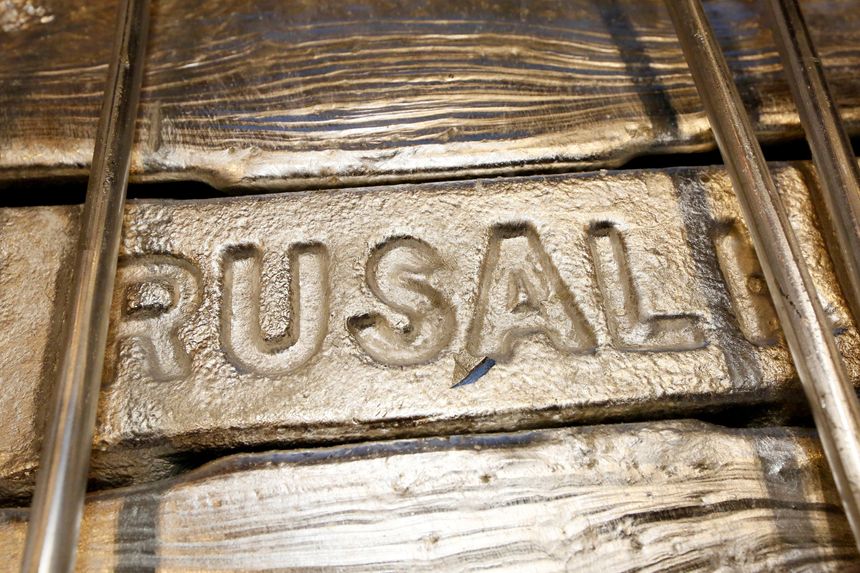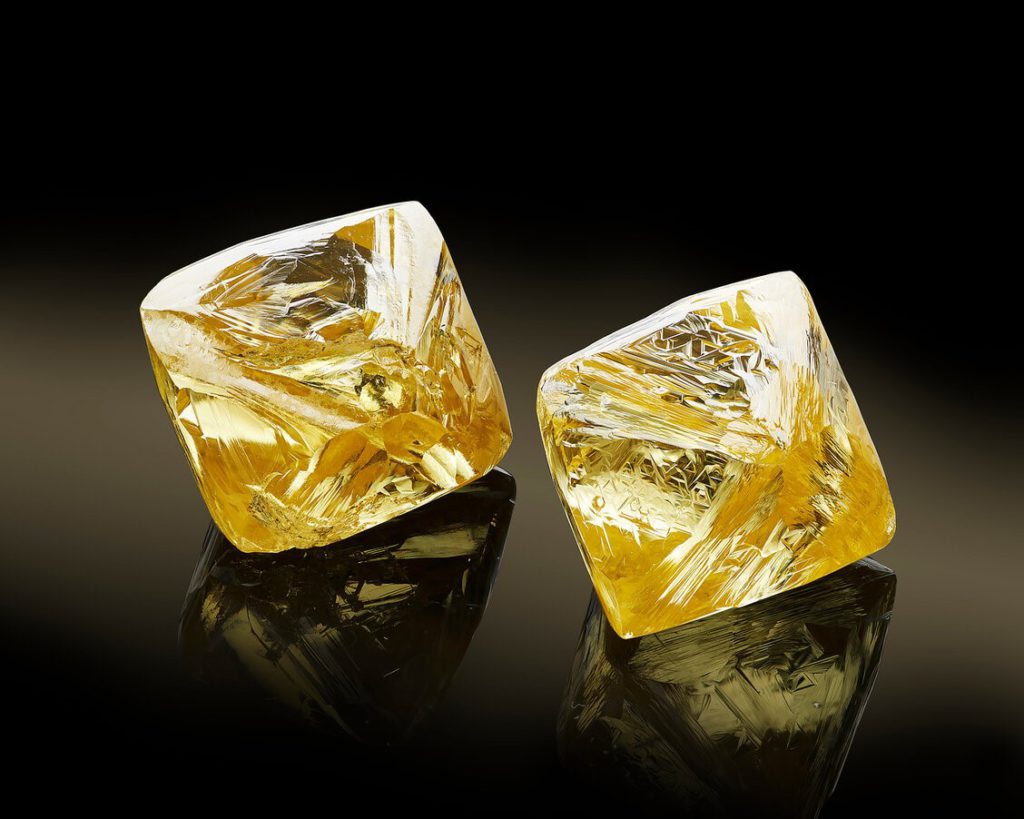Reuters | May 17, 2024 |

Credit: Rusal
Industry group European Aluminium has stepped up its long-running call for the European Union to expand its sanctions regime on Moscow, saying the EU could live comfortably without major Russian aluminum products.

Russia’s Rusal, the world’s largest aluminum producer outside China, said the main victims of such measure would be the European consumers.
“It’s getting harder and harder to justify the continued exclusion of aluminum ingots from the scope of EU sanctions on Russia,” Paul Voss, director general at European Aluminum, said in a statement on Friday.
“We could live comfortably without it, and we should.”
The EU has been discussing a planned 14th package of Russian sanctions this month, but aluminum has not been mentioned in the European Commission’s proposals so far.
The EU already has bans in place on Russian-made aluminum wire, foil, tubes and pipes, but imports of Russian aluminum ingots, slabs and billets – 85% of the EU’s aluminum imports from Russia – remain excluded from the measures. The US and Britain previously banned Russian aluminum imports.
European Aluminium has been lobbying the EU for a ban on Russian-made aluminum over Moscow’s invasion of Ukraine, while stressing that sanctions should avoid Rusal, which has operations in Ireland, Sweden and some other countries.
EU’s 2023 imports of Russian-made primary aluminum fell by 45% to 1.25 billion euros ($1.35 billion), according to the group. Russia accounts for 8% of the EU’s ingot imports, it added.
The group is calling for an EU import ban of Russian aluminum ingots, slabs, and billets and proposes the measures include indirect imports of Russian ingots via semi-finished products from third countries.
Rusal said the proposed measures would hit EU’s small- and mid-sized downstream companies.
“Rusal has been operating in Europe for more than 20 years,” it said in an emailed comment. “We hope for a balanced and reasonable approach from the EU authorities.”
($1 = 0.9226 euro)
(Reporting by Polina Devitt; editing by Jonathan Oatis)
US lukewarm on G7 Russian diamond ban after industry backlash
Reuters | May 17, 2024 |

Image from Alrosa.
The United States is re-evaluating the strictest elements of a ban on Russian diamonds from the Group of Seven major democracies, after opposition from African countries, Indian gem polishers and New York jewellers, seven sources said.

The sanctions package, agreed in December and including a ban across the European Union, represents one of the industry’s biggest shakeups in decades.
Two of the sources familiar with the negotiations said the Americans had disconnected from G7 working groups on the stringent controls, with one describing them as “there but not engaging”.
The US State Department declined to comment.
A senior Biden administration official said Washington had not changed its position and that the United States would keep working with the G7.
“We will want to make sure that we strike the right balance between hurting Russia and making sure that everything is implementable,” said the official who declined to be named because they were not authorised to speak publicly on the negotiations.
The G7 sanctions aim to hit another stream of revenue for the Kremlin’s war effort in Ukraine, even though at around $3.5 billion, according to Russian state-run miner Alrosa’s 2023 results, diamonds represent a small fraction of the profits Moscow earns from oil and gas.
Since March, importers to G7 countries must self-certify that diamonds do not originate from Russia, the world’s leading producer of rough diamonds. Sanctions were imposed on direct imports of Russian gems in January.
From September, the EU ban will require diamonds of 0.5 carats and above to pass through Antwerp, a centuries-old diamond hub in Belgium, for traceability certification using blockchain – the digital ledger used by cryptocurrencies.
Sources said G7 powers had agreed that Antwerp would be the logical first hub, with others to be added later.
But three of the sources said Washington had cooled on enforcing traceability and that discussions on implementing tracing had stalled.
The Biden administration official said the commitment to implementing a traceability mechanism by Sept. 1 applied to the European Union, not the United States, citing the language in a G7 leaders’ statement in December.
“We need to do this in a way that takes into account concerns from African partners and African producers, takes into account Indian and UAE partners … and makes sure we can also make it workable for U.S. industry,” said the official.
“Is there a traceability mechanism that satisfies all of that? We haven’t walked away from the idea… on the other hand, we couldn’t sign up to definitely having this in place by Sept. 1st.”
The presidents of Angola, Botswana and Namibia wrote to G7 leaders in February to say that a pre-determined entry point for the G7 market would be unfair, impinge on freedoms, and hurt revenues. The three nations account for 30% of diamond output.
Italy, which holds the presidency of the G7, declined to comment on the U.S. position.
Any softening of the phased ban risks leaving loopholes and allowing Russian diamonds into boutiques in New York, London and Tokyo – a threat highlighted when Belgian authorities seized suspected Russian stones worth millions of dollars in February.
Advocates of the sanctions say a traceability mechanism is needed to deliver a robust ban and that without the full engagement of the United States, which accounts for 50% of the G7 diamond jewellery market, it cannot be effective. They blamed some of the industry pushback on fears of greater market transparency.
A Belgian official familiar with the negotiations said it was paramount to maintain the determination to keep loopholes firmly closed.
Certifying at Source
A previous US ban on Russian diamonds excluded stones polished elsewhere, allowing diamonds processed in India and traded in hubs like Dubai to reach the U.S. market.
The G7 ban followed months of wrangling between Western capitals.
Diamond miners such as De Beers, a unit of Anglo American, Indian cutters and jewellery retailers have strongly lobbied against the ban. They say the measures are poorly designed, will increase bureaucracy and inflate prices.
De Beers told Reuters it supported a ban but that diamond-producing countries should certify origin at the source.
“The opportunities for, and likelihood, of Russian diamonds infiltrating the legitimate supply chain are in fact higher when you move further away from the source,” the company said.
Virginia Drosos, chief executive of Signet, the world’s largest retailer of diamond jewellery, urged the US government in a letter seen by Reuters to “stand against… the G7 Belgian solution.”
Belgium has introduced a pilot tracing scheme based in Antwerp in which some 20 diamond buyers are participating, among them French luxury groups LVMH and Kering as well as Switzerland’s Richemont, one of the sources said.
An LVMH spokesperson said its Tiffany & Co brand was participating. Kering and Richemont did not comment.
Belgian Prime Minister Alexander De Croo told Reuters in March that he was open to additional hubs being established for certification if they matched Antwerp’s standards, and that concerns were inevitable.
“If you implement something that is changing the game, (it) takes some time to iron out some issues.”
(Reporting by Julia Payne in Brussels and Dmitry Zhdannikov in London; additional reporting by Daphne Psaledakis in Washington, Brian Benza in Gaborone, Miguel Gomes in Luanda and Mimosa Spencer in Paris; editing by Richard Lough and Emelia Sithole-Matarise)
No comments:
Post a Comment